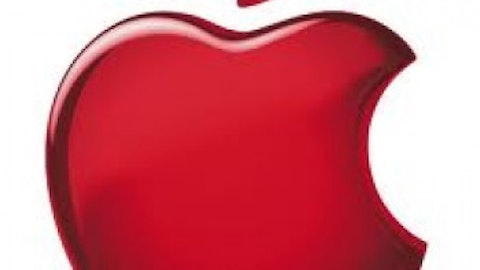While this is generally true, it is becoming increasingly irrelevant. The rise of the cloud means that individual pieces of hardware are doing less talking between each other and more talking to the cloud. There is no reason to connect an iPhone to a Macbook to upload photos, when a user can instead transfer them using Dropbox or a similar service.
The claim:There are synergies across accessories; one charger, for example, can be used for multiple different devices.
This was once true, but Apple Inc. (NASDAQ:AAPL) has torpedoed this synergy by introducing a new style of charger. Most devices that compete against Apple’s products use standard cables like HDMI or micro-USB. These cables can be purchased for about one-tenth the cost of an Apple proprietary cable.
The claim:Customers with large iTunes libraries will keep using devices that sync directly with the media store.
This last claim is the most significant of all, but there are signs it is becoming irrelevant. In the realm of music, subscription-based services like Rhapsody and Spotify have seen tremendous growth, as consumers give up their libraries in favor of access to an unlimited catalogue. There are even signs that Apple Inc. (NASDAQ:AAPL) may hasten this transition. The company has been rumored to be working on such a service, and the rumor has been significant enough to affect shares of Pandora.
Apple’s super fans
So, what explains the existence of the Apple super fan?
This phenomenon can be seen in a different industry: automobiles. In the automotive world, there is a great deal of consumer stickiness or loyalty; JD Power puts the average at about 49 percent. One person may stick to the same brand or even the same model for their entire life.
Why? There is clearly no ecosystem at work. Someone who owned an old Ford truck doesn’t derive any value from buying a new Ford truck just because they used to own an old one.
Instead, there’s a sense of trust and familiarity. The same can be seen with Apple products. Someone finding their iPhone to be a quality device is more likely to consider an iPad when it comes time to purchase a tablet.
But unlike cars, personal electronics evolve rapidly. Once loyal customers can be persuaded to switch when a superior product comes along: Just ask Research in Motion’s now unemployed co-founders, Mike Lazaridis and Jim Balsillie.
This time it’s different
Distilled to its most basic form, the myth is really nothing more than a variation of a claim that has devastated traders since the dawn of Wall Street: This time it’s different.
“This time it’s different!” They claim. Apple Inc. (NASDAQ:AAPL) isn’t RIM, Nokia or Motorola. Unlike those other handset makers, whose businesses fell by the wayside when their products were no longer favored by the market, Apple has staying power. Its ecosystem gives it a wide moat; a business model that will ensure that Apple’s customers come back year after year to upgrade their old iDevices.
This is simply nonsense. Apple isn’t just a hardware company or a software company. Nor is it creating some powerful ecosystem that will stand the test of time. It is fundamentally a product company.
As long as its products continue to sell well (at a healthy margin of course) Apple should continue to report solid earnings. But if its products are outclassed by superior competition, investors shouldn’t expect some imaginary ecosystem to protect the company from rapidly declining demand.
The article Why David Einhorn Is Wrong About Apple originally appeared on Fool.com.
Copyright © 1995 – 2013 The Motley Fool, LLC. All rights reserved. The Motley Fool has a disclosure policy.





